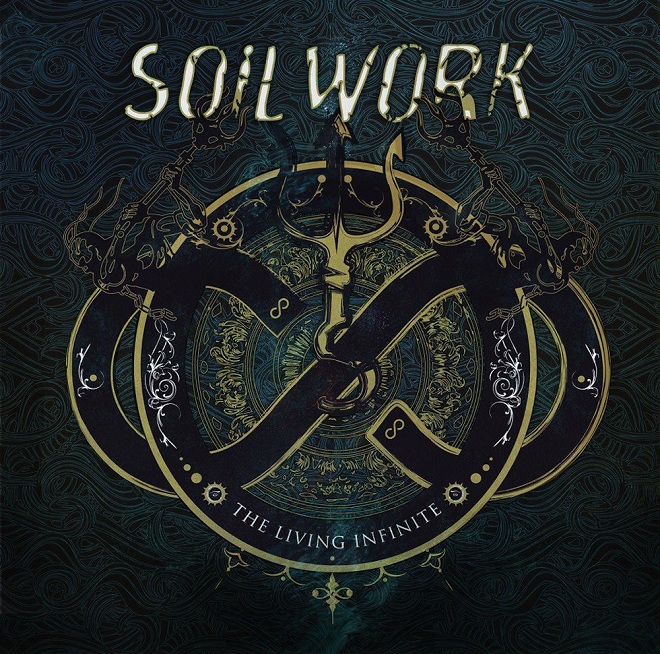Soilwork means to ‘work up from below the ground’. This melodic death metal band from the Swedish town of Helsingborg has been a trendsetter in their genre ever since their formation as Inferior Breed in 1995. Starting out as an out-and-out melodic death metal band, Soilwork had become pioneers. With a whiff of refreshingly aggressive and groovy sound to their music and the brilliant clean and harsh vocals by co-founder Björn Strid, Soilwork had a great run into the new millennium. Gigs all around the world, a relatively consistent line-up and the consistent record releases added to Soilwork’s global appeal. Their first blow was the departure of guitarist Peter Wichers late in 2005, which drastically reduced the appeal of the band in terms of the melodic influences on their songs, hence becoming a tad stagnant in terms of music. With similar bands trying out many variations to their musicality, Soilwork began to slump in terms of expectations for a band of their magnitude. Buoyed by Wichers’ return, Soilwork began working on their ninth studio album ‘The Living Infinite’. All was good until Wichers terminated his tenure for the second time and was replaced by David Andersson. With Sven Karlsson on keyboards, Sylvain Coudret on guitar, Ola Flink on bass and drummer Dirk Verbeuren completing the line-up, were Soilwork able to cope with the sudden loss and the pressure to deliver after what was a lull by their standards?
With their recent albums, notably ‘The Panic Broadcast, widely criticized as a move backwards, Soilwork were notorious for sticking to their renowned melodic/metalcore musicality, barring the brilliant ‘Swore to a Great Divide’. Also, bogged down by founding guitarist Peter Wichers leaving the band not once but twice might have caused chaos within the members in order to come up with something new. And Soilwork seem to have struck the right chord, literally, with ‘The Living Infinite’, by coming up with a double album of ten tracks each, clocking just close to the 90 minute mark. The astonishing length of the whole record might seem intimidating but what I found upon listening to all of them was blissful metal that was absolutely head-bang worthy.
In terms of musicality, each track stands out for itself, either in terms of distinct tones in the tracks or interludes that dramatically lead onto another verse and the best of all, the hint of progressive elements and acoustic bits between verses. Tracks that stick out for the said traits are ‘Vesta’ and ‘Whispers and Lights’ and both versions of the title track. There are a few quintessential Soilwork staples like ‘Tongue’, ‘Let the First Wave Rise’ and ‘The Windswept Mercy’ that combine Stird’s varying vocal pitches with Andersson carrying the mantle of the churning out melodic riffs to match Coudret’s mind-blowing shredding and Verbeuren’s double bass blast beats. The best part of the album is that with the given scope for variety and considering the length, Soilwork have done a commendable job at ensuring that the listener is able to cohere atleast most of the tracks and at the same time, bring a unique identity to every song. Although songs like ‘Memories Confined’, ‘Spectrum of Eternity’ and ‘Leech’ might seem like fillers to a length album, so as to say that the track listing was shortlisted for 27 songs is a blessing in disguise. That apart, the whole record is a must-hear for modern metal-heads and good old Soilwork fans alike.
Surely Soilwork have conjured up a long and tedious, yet brilliant double album which not only excels in terms of content and music, but also in the quality of music production and mixing. The only complaint would be the lack of the profound sound of keys and the bass, which are pretty much muted especially during the harsh vocal parts. Twenty tracks is a lot people, so get your copy of the record and concur with me.
Rating – 7.5/10
